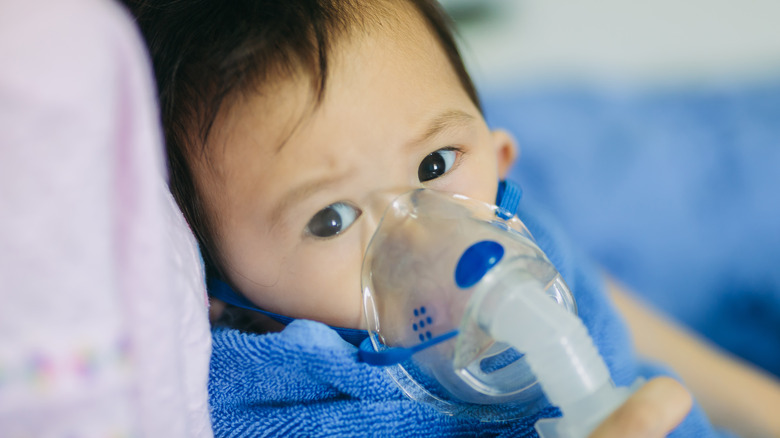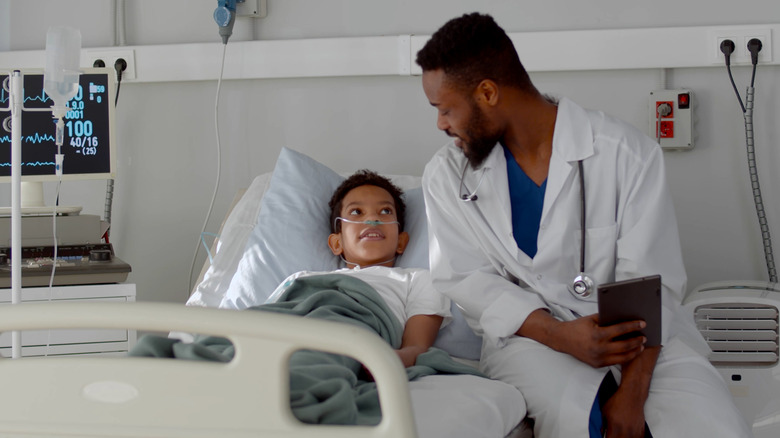Are US Children's Hospitals Equipped To Deal With The RSV Surge?
Across the country, pediatric hospital beds are at approximately 80% capacity, partly due to an increase in child cases of respiratory syncytial virus (RSV), reports CNN. As a common respiratory illness often affecting young children before the age of 2, RSV presents similarly to the cold or flu, according to the Mayo Clinic. Symptoms include sore throat, low-grade fever, congestion, dry cough, runny nose, headaches, and more. Although the virus is not uncommon, infants are amongst those at an increased risk for severe cases of infection.
In some states, hospitals are experiencing emergency room overwhelm, patient overflow, and longer wait times due to staffing shortages (via CNN). Dr. Rishi Lulla is the director of pediatric hematology/oncology at Hasbro Children's Hospital in Rhode Island — a state currently nearing 100% hospital bed capacity. Dr. Lulla tells CNN, "We're extremely overwhelmed. We're doing the best that we can to try to use the resources that we have, expand where we have capacity to expand and serve the most vulnerable kids." With the bulk of flu season still ahead of us, as well as pre-existing nurse shortages due to COVID, some health experts believe hospitals will continue to face these challenges for the foreseeable future.
How staffing shortages may affect patient care
Katie Boston-Leary, director of nursing programs at the American Nurses Association, described the staffing shortage to CNN as a "public health crisis," calling for government intervention. Demonstrating this need, some hospital facilities report setting up tents to create space for the influx of patients. Not only do these shortages pose problems in terms of nurse-to-patient ratios, but a lack of staff means those working are stretched thin, subsequently increasing the chances for error. "The higher the work volume, the higher the stress level, the more likely we're going to make a mistake," Dr. Marcus Schabacker, president and CEO of Emergency Care Research Institute, told CNN.
To help ease the strain on hospital personnel, experts encourage the public to take preventative measures to help protect young children against RSV infection. "I would strongly encourage anyone with any respiratory symptoms like a runny nose, cough, or sore throat to avoid visiting or coming in close contact with young children, especially those under 6 months old," advises Dr. Nipunie Rajapakse, a pediatric infectious diseases physician at Mayo Clinic, Rochester, via TODAY. Dr. Rajapakse goes on to say that while RSV may feel like nothing more than a pesky cold to adults, it can be fatal for young babies.


